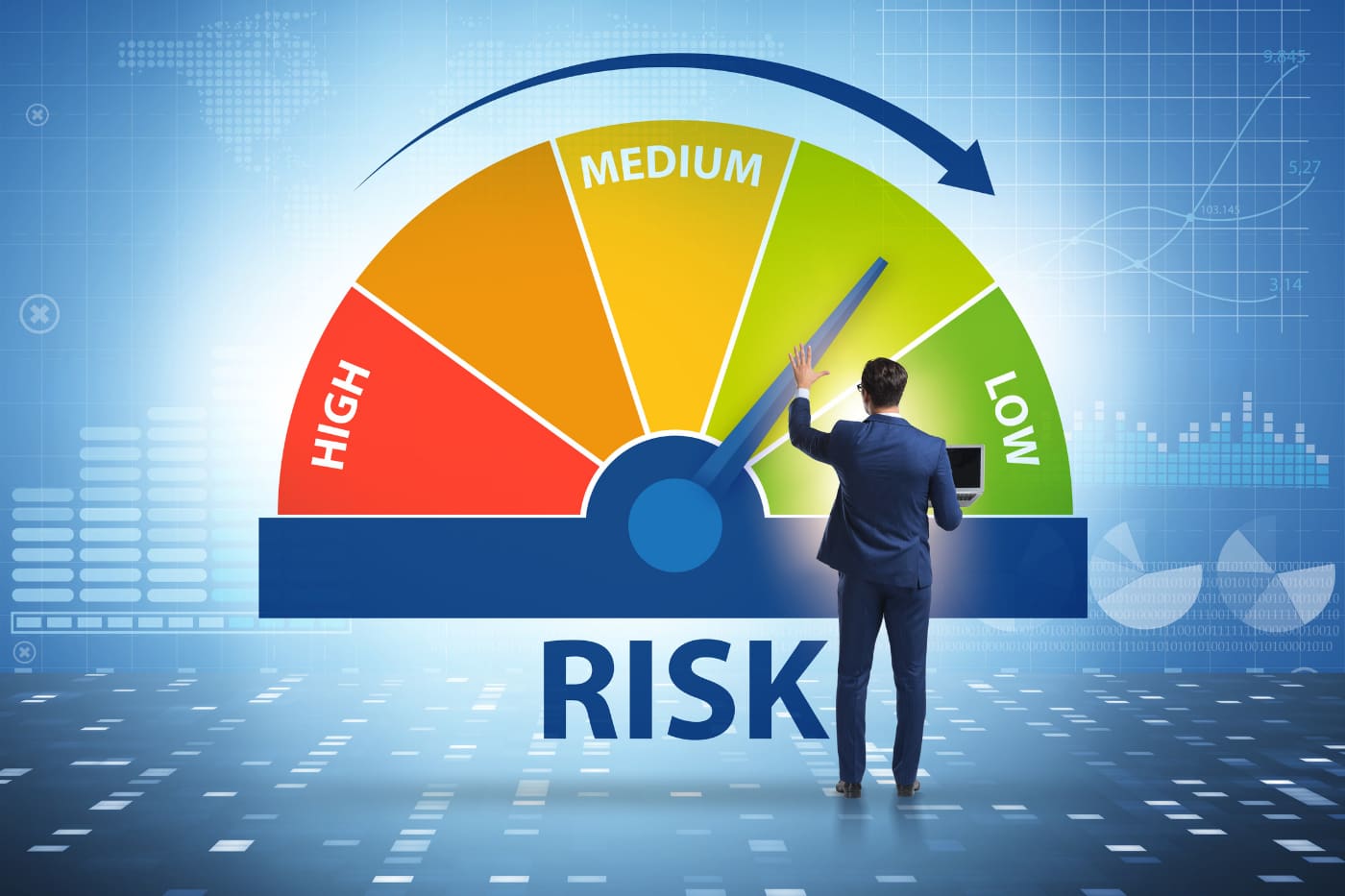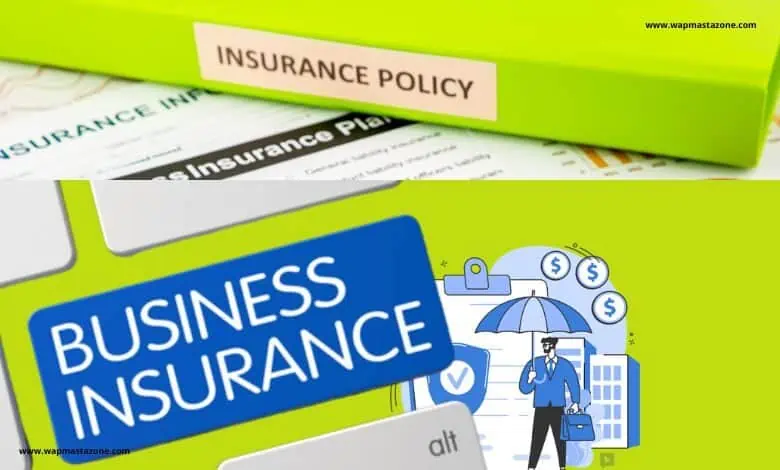Small Business Insurance Guide are the backbone of the global economy. They account for a significant portion of all businesses and provide job opportunities and essential services. While small business owners invest time, money, and effort into making their ventures successful, they often underestimate the importance of insurance. Having the right insurance coverage can mean the difference between bouncing back from adversity or facing financial ruin.
This guide aims to demystify small business insurance, making it accessible and comprehensible for entrepreneurs and small business owners. We’ll start with the basics and gradually delve into the various types of insurance policies, helping you understand what each covers and why you might need it. We’ll also discuss how to determine the right coverage for your business, control insurance costs, and navigate the claims process effectively.
Let’s embark on this journey to secure your small business against unforeseen challenges and setbacks.
Understanding Small Business Insurance
The Basics
Small business insurance, also known as commercial insurance, is a set of policies designed to protect your business from financial losses that can result from unforeseen circumstances. These circumstances may include property damage, liability claims, employee injuries, or even cyberattacks. Small business insurance serves as a financial safety net, helping you recover and continue your operations in the event of such incidents.
The specifics of your insurance needs will depend on the type of business you operate, the size of your business, your location, and various other factors. However, there are several core types of insurance that most small businesses should consider. These include property insurance, liability insurance, workers’ compensation, commercial auto insurance, business interruption insurance, health insurance, cyber liability insurance, and professional liability insurance.
Legal Requirements
While some forms of insurance are voluntary, others may be legally required based on your location and the nature of your business. Here are some common mandatory insurance types:
- Workers’ Compensation: In most states, businesses with employees are legally required to have workers’ compensation insurance. This coverage helps employees in case of work-related injuries or illnesses and can prevent legal actions against your business.
- Commercial Auto Insurance: If your business owns or uses vehicles, you may be legally obligated to carry commercial auto insurance. This protects your business in case of accidents involving company vehicles.
- Health Insurance: The Affordable Care Act (ACA) mandates that certain businesses provide health insurance to their employees. The specific requirements depend on the number of full-time employees.
- Unemployment Insurance: State laws often require businesses to contribute to unemployment insurance. This provides financial support to employees who have lost their jobs.
It’s crucial to research and comply with local and federal regulations to avoid legal issues and penalties.
Types of Small Business Insurance
Now that we’ve covered the basics of small business insurance and legal requirements, let’s delve into the various types of insurance policies available and explore what they entail.
Property Insurance
Property insurance is essential for any business with physical assets, such as a storefront, office space, equipment, or inventory. It protects your property against various risks, including fire, theft, vandalism, and natural disasters like earthquakes or floods. There are two main types of property insurance:
- Commercial Property Insurance: This covers your physical business property, including buildings, equipment, inventory, and furniture. It protects you from losses caused by covered perils, ensuring that you can repair or replace damaged assets.
- Business Interruption Insurance: Often bundled with commercial property insurance, this coverage provides financial assistance when your business operations are disrupted due to a covered event. It helps cover lost income, ongoing expenses, and relocation costs.
Liability Insurance
Liability insurance is designed to protect your business from financial claims or lawsuits that can arise due to your products or services. Here are a few key liability insurance types:
- General Liability Insurance: This is the foundation of any small business insurance plan. It covers claims related to bodily injury, property damage, or personal injury that occur on your business premises or due to your operations.
- Product Liability Insurance: If your business manufactures, distributes, or sells products, this insurance type safeguards you against claims related to product defects, including injuries or damage caused by a faulty product.
- Professional Liability Insurance: Also known as errors and omissions (E&O) insurance, this coverage is crucial for professionals like doctors, lawyers, and consultants. It protects against claims of negligence, errors, or omissions in professional services.
- Cyber Liability Insurance: In an age of increasing cyber threats, this insurance protects your business from data breaches and cyberattacks. It covers the costs of notification, credit monitoring, and potential legal action if sensitive customer or employee information is compromised.
Workers’ Compensation
Workers’ compensation insurance is essential if your business has employees. It provides financial support to employees who suffer job-related injuries or illnesses, covering medical expenses, lost wages, and rehabilitation costs. By having this coverage, you also protect your business from employee lawsuits related to workplace injuries.
Commercial Auto Insurance
If your business uses vehicles for any purpose, you should have commercial auto insurance. This coverage applies to company-owned vehicles and those used for business purposes, including employee-owned vehicles used for work. It helps cover costs related to accidents, injuries, or property damage involving these vehicles.
Business Interruption Insurance
As mentioned earlier, business interruption insurance is often bundled with commercial property insurance. It’s a lifeline for your business when you experience a covered event that disrupts your operations. Whether it’s a natural disaster, fire, or other unforeseen circumstances, this coverage ensures you have the financial resources to keep your business afloat during challenging times.
Health Insurance
Providing health insurance to your employees is a valuable benefit and can be legally mandated, depending on your business size and location. While the specific requirements may vary, offering health insurance can attract and retain top talent and promote the well-being of your workforce.
Cyber Liability Insurance
With the increasing prevalence of cyber threats, protecting your business against data breaches and cyberattacks is paramount. Cyber liability insurance helps cover the costs associated with recovering from a data breach, including notification, legal, and public relations expenses.
Professional Liability Insurance
Professional liability insurance, often called errors and omissions (E&O) insurance, is crucial for service-oriented businesses. It protects against claims of negligence, errors, or omissions in the services you provide. If a client or customer alleges that your services led to financial losses, this insurance can provide the necessary protection.
These are the primary types of insurance coverage that small businesses should consider. The specific policies and coverage amounts you need will depend on your industry, business size, and unique circumstances.
Choosing the Right Coverage in Small Business Insurance Guide
Selecting the right insurance coverage for your small business can be a complex process. It involves evaluating your business’s unique needs, understanding the risks you face, and choosing the appropriate policies and coverage limits. Here’s a step-by-step guide to help you make the right decisions:
Assessing Your Business Needs
- Identify Your Risks: Start by conducting a thorough risk assessment. What are the most significant risks your business faces? Consider factors like your location, industry, the number of employees, and the nature of your products or services.
- Legal Requirements: Check your local and federal requirements for mandatory insurance. Ensure you comply with all relevant laws and regulations.
- Understand Industry Standards: Research industry-specific insurance needs. Some businesses may require specialized policies due to their unique risks and challenges.
- Evaluate Your Assets: Determine the value of your business assets, including physical property, equipment, inventory, and intellectual property. This will guide your decisions on property insurance.
- Assess Liability Risks: Identify potential liability risks, such as customer accidents, product defects, or professional negligence. Tailor your liability insurance to cover these specific risks.
Working with an Insurance Agent
Insurance agents are valuable resources when it comes to choosing the right coverage for your business. They have in-depth knowledge of the insurance market and can help you navigate the complex world of policies and premiums. Here’s how to work effectively with an insurance agent:
- Seek Referrals: Ask other business owners for referrals to reputable insurance agents. Look for agents with experience in your industry.
- Interview Multiple Agents: Don’t settle for the first agent you meet. Consult with multiple agents to get a sense of their expertise and communication style.
- Share Business Information: Be open and honest about your business operations, assets, and risks. The more your agent knows, the better they can tailor a policy to your needs.
- Ask Questions: Don’t hesitate to ask questions about policy specifics, coverage limits, deductibles, and premiums. Your agent should be patient and willing to explain complex insurance jargon.
- Review Policy Options: Your agent should present you with multiple policy options. Take your time to review and compare them, considering the coverage offered and the associated costs.
- Annual Reviews: Keep in touch with your agent and review your policies annually. As your business evolves, your insurance needs may change, and adjustments may be necessary.
Package Policies
To simplify the insurance process and potentially reduce costs, consider package policies, often referred to as business owners’ policies (BOPs). These combine various types of coverage into a single policy, offering a cost-effective solution for small businesses.
A BOP typically includes general liability insurance, property insurance, and business interruption insurance. It’s an excellent choice for businesses with relatively straightforward insurance needs. However, keep in mind that you may need additional policies to address industry-specific or unique risks.
Insurance Costs and Premiums of Small Business Insurance Guide
Understanding the factors that influence insurance costs and premiums is crucial to managing your business’s financial resources effectively. Insurance can be a significant expense, so it’s important to explore ways to reduce costs without compromising coverage.
Factors Affecting Premiums
Several factors influence insurance premiums. These include:
- Business Type and Industry: Some industries are riskier than others, leading to higher premiums. For instance, a construction company may pay more for liability insurance than a graphic design agency.
- Location: The location of your business matters. Areas prone to natural disasters or with high crime rates may lead to higher premiums.
- Business Size: The size of your business, including the number of employees, affects your insurance needs and costs.
- Claims History: If your business has a history of frequent claims, insurers may consider you a higher risk and charge higher premiums.
- Coverage Limits and Deductibles: Higher coverage limits and lower deductibles result in higher premiums. Assess your risk tolerance and budget when setting these values.
- Equipment and Assets: The value and condition of your business equipment and assets play a role in property insurance costs.
- Safety Measures: Insurers may offer discounts if your business implements safety measures to reduce risks, such as security systems or safety training programs.
Reducing Insurance Costs in Small Business Insurance Guide
While some factors are beyond your control, there are several strategies to reduce insurance costs:
- Shop Around: Don’t settle for the first quote you receive. Obtain quotes from multiple insurers to compare premiums and coverage.
- Bundle Policies: Consider package policies or bundle multiple policies with a single insurer to receive discounts.
- Manage Risk: Implement safety measures to reduce risks in your business operations, potentially lowering premiums.
- Increase Deductibles: If you have a strong financial buffer, consider raising deductibles to lower premiums. However, be prepared to cover higher out-of-pocket costs in the event of a claim.
- Maintain a Good Claims History: Minimize claims when possible, as a history of frequent claims can lead to higher premiums.
- Regularly Review Policies: As your business evolves, revisit your insurance policies to ensure they align with your current needs and risks.
- Seek Professional Advice: Work with an experienced insurance agent who can help you find cost-effective solutions.
Filing a Claim in Small Business Insurance Guide
Filing an insurance claim can be a complex and time-consuming process, but it’s essential to receive the compensation you deserve when facing an unexpected event. Here are the steps to follow when filing a claim:
Claim Process in Small Business Insurance Guide
- Notify Your Insurer: As soon as the incident occurs, contact your insurance provider to initiate the claims process. Prompt notification is critical for a smooth claims experience.
- Gather Documentation: Collect all relevant documentation, including photos, police reports, medical records, or witness statements. The more evidence you have, the stronger your claim.
- Submit a Claim Form: Your insurer will require you to complete a claim form. Be thorough and accurate in your responses, and include all supporting documents.
- Cooperate with Adjusters: Your insurer may send an adjuster to assess the damage or losses. Cooperate fully and provide all requested information.
- Stay Informed: Keep in touch with your insurance company throughout the process. Ask questions and seek clarification as needed.
- Review the Settlement Offer: Once your claim is processed, your insurer will make a settlement offer. Carefully review the offer to ensure it covers all your losses.
- Accept or Negotiate: You can choose to accept the settlement offer or negotiate with your insurer if you believe the offer is insufficient.
Common Mistakes to Avoid in Small Business Insurance Guide
Filing a claim can be complex, and making mistakes can delay or jeopardize your compensation. Here are some common errors to avoid:
- Delaying Notification: Notify your insurer promptly after an incident to avoid complications or claim denial.
- Incomplete Documentation: Ensure you gather all necessary documents and evidence to support your claim.
- Lack of Cooperation: Be responsive to requests from your insurer and adjusters, as non-cooperation can lead to claim denials.
- Accepting an Inadequate Offer: Don’t rush to accept a settlement offer without thoroughly reviewing it and seeking legal advice if necessary.
- Filing Unnecessary Claims: Avoid making minor claims that could lead to increased premiums and a negative claims history.
Small Business Insurance Tips in Small Business Insurance Guide
To conclude our comprehensive small business insurance guide, here are some additional tips to help you navigate the world of insurance effectively:
- Regularly Review Your Policies: As your business evolves, your insurance needs may change. Ensure your policies remain up to date and provide adequate coverage.
- Seek Legal Advice: For complex claims or disputes with insurers, consider seeking legal advice to protect your rights and interests.
- Educate Your Employees: Help your employees understand your insurance policies and procedures to facilitate smooth claims processes.
- Network and Learn from Others: Connect with other small business owners to share experiences and gain insights into insurance matters.
- Consider Risk Management: Implement risk management strategies to reduce the likelihood of claims, ultimately saving on insurance costs.
- Use Technology: Leverage technology to manage your insurance policies and claims efficiently. There are various software solutions designed to simplify the process.
- Stay Informed: Keep up with industry trends and insurance regulations to make informed decisions for your business.
- Maintain a Healthy Financial Buffer: Having financial reserves can help you cover deductibles and expenses not covered by insurance.
Conclusion on Small Business Insurance Guide
Small business insurance is a crucial aspect of protecting your ventures from unforeseen risks and financial setbacks. While navigating the world of insurance can be complex, this guide provides you with the knowledge and tools to make informed decisions about the insurance coverage your business needs.
From understanding the basics of small business insurance to choosing the right coverage, managing insurance costs, and effectively filing claims, you now have the information required to safeguard your business and its future. Remember that every business is unique, so it’s essential to assess your specific risks and tailor your insurance policies accordingly.
By prioritizing insurance and taking proactive steps to manage risks, you can secure the success of your small business and ensure it thrives in the face of adversity. Small business insurance is not just an expense; it’s an investment in the longevity and resilience of your entrepreneurial journey.





